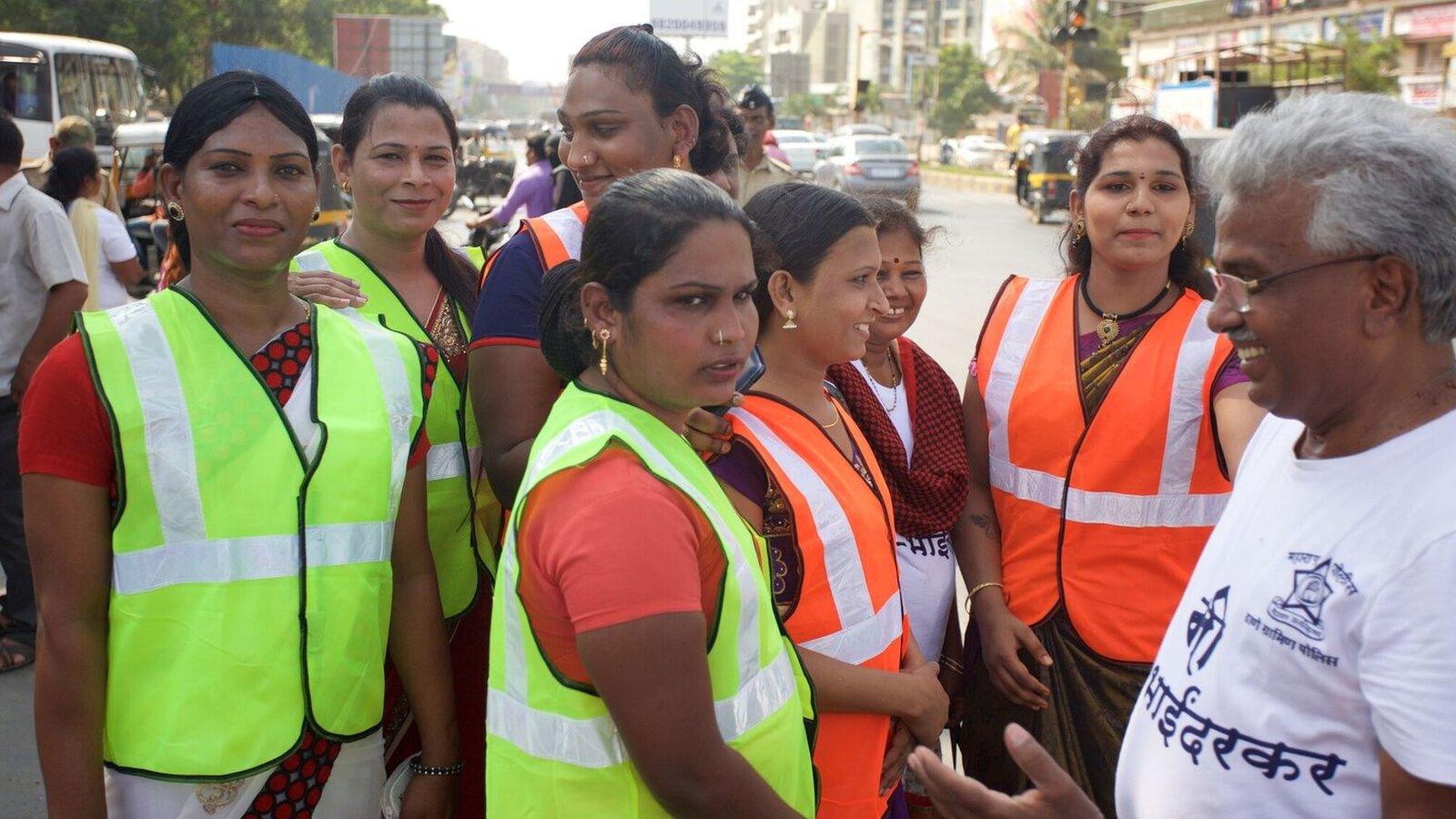India opens first school for transgender pupils
- Published
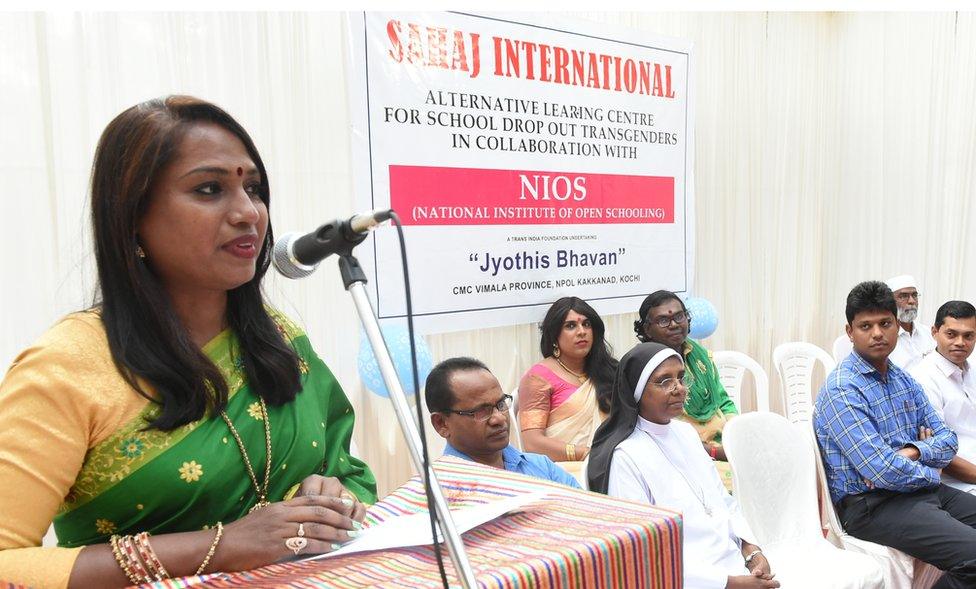
Transgender rights activist Kalki Subrahmaniam officially opened the school, which will start out with 10 pupils
A residential school for transgender people has been opened in the Indian city of Kochi, to help adults who dropped out of school finish their education.
Transgender people can face judgement and hostility in India, and around half of them fail to complete their schooling as a result.
Sahaj International is the first school of its kind in India.
It will welcome 10 pupils, aged 25-50.
The students will be prepared for India's Class 10 and 12 board exams, normally sat when students are aged 15-16 or 17-18 respectively. The curriculum will also include some vocational skills.
Transgender activist Vijayraja Mallika, who heads the school, told the BBC: "The school aims at making transgenders eligible for taking decent jobs and living a dignified life."
"We have admitted six candidates so far, all male-to-female persons, from 14 applicants. Of the 10 seats, we have reserved one for female-to-male and one for the disabled."
Teachers are also transgender
The school is in Kerala, which is the first Indian state to adopt a transgender policy against discrimination. It promotes inclusive education, and offers free gender reassignment surgery at government hospitals.
The centre's organisers said they had arranged sponsors for all the students, to pay for their food, accommodation and studies.
The teachers also belong to the transgender community - a measure designed to protect and encourage the pupils.
The decision comes after India's first transgender college principal, Manabi Bandopadhyay, resigned from her post claiming that some of her students and fellow teachers had agitated against her because of her sexual identity.
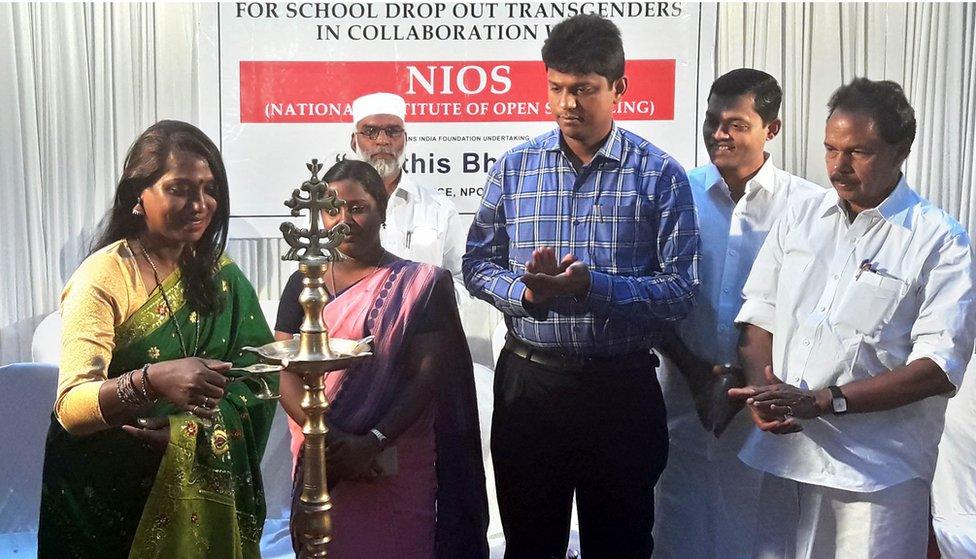
Kalki Subrahmaniam called the opening of the school a "historic day"
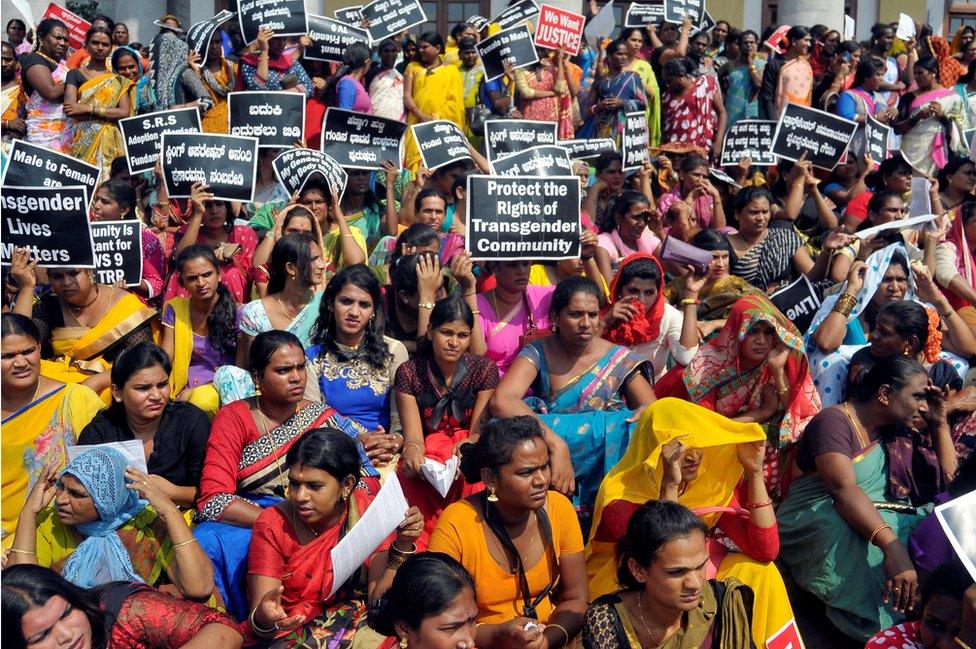
Transgender activists hope the school will boost students' employment prospects
India has an estimated two million transgender people, and in 2014 the country's Supreme Court ruled that they have equal rights under the law.
As well as the right to marry and inherit property, they are also eligible for quotas in jobs and educational institutions.
But abuse and exploitation are still common. Many transgender people are thrown out of home by their families, denied jobs, and forced into sex work, begging, or dancing at weddings to make ends meet.
'700 people turned us away'
Even finding a venue for the school was a challenge, as nobody was willing to rent the founders their premises.
"We approached some 700 people and 51 households, and all of them turned us away. They seemed to think that we were looking for space for prostitution," Ms Mallika said.
Finally, a suitable site was found.
All of the school's first students come from Kerala, but Ms Mallika hopes to gather more from beyond the state.
"This is a model centre. Once proved successful, we will expand the facilities and admit more people, from across India," she said.
"Kerala has some 25,000 transgenders, and 57% of them were forced to drop out of school due to stigma. They all should get a decent accommodation the policy initiatives envisaged."
The school was opened by activist Kalki Subramaniam, who is a transgender woman herself.
"This day is historic for me," she said.
Reporting by Ashraf Padanna in Trivandrum, Kerala
- Published23 May 2016
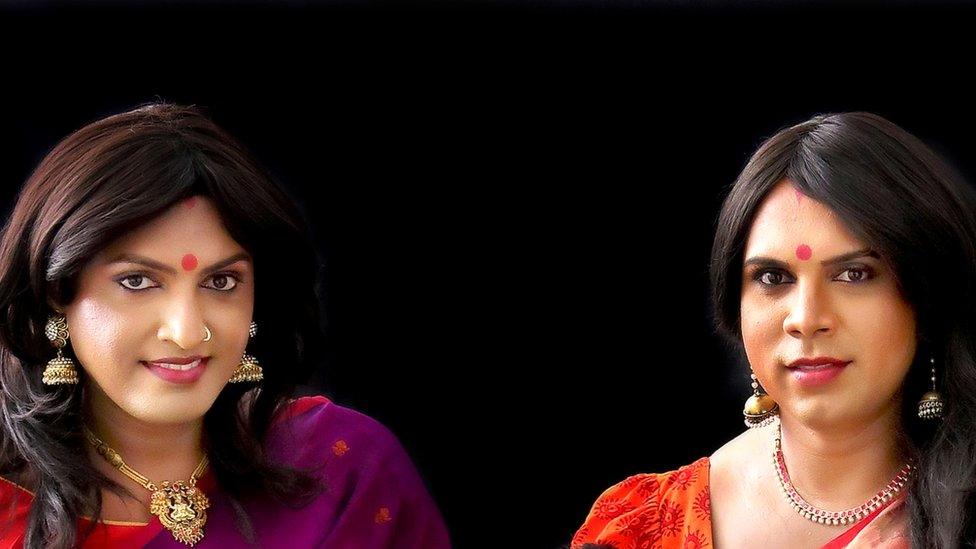
- Published6 May 2016
